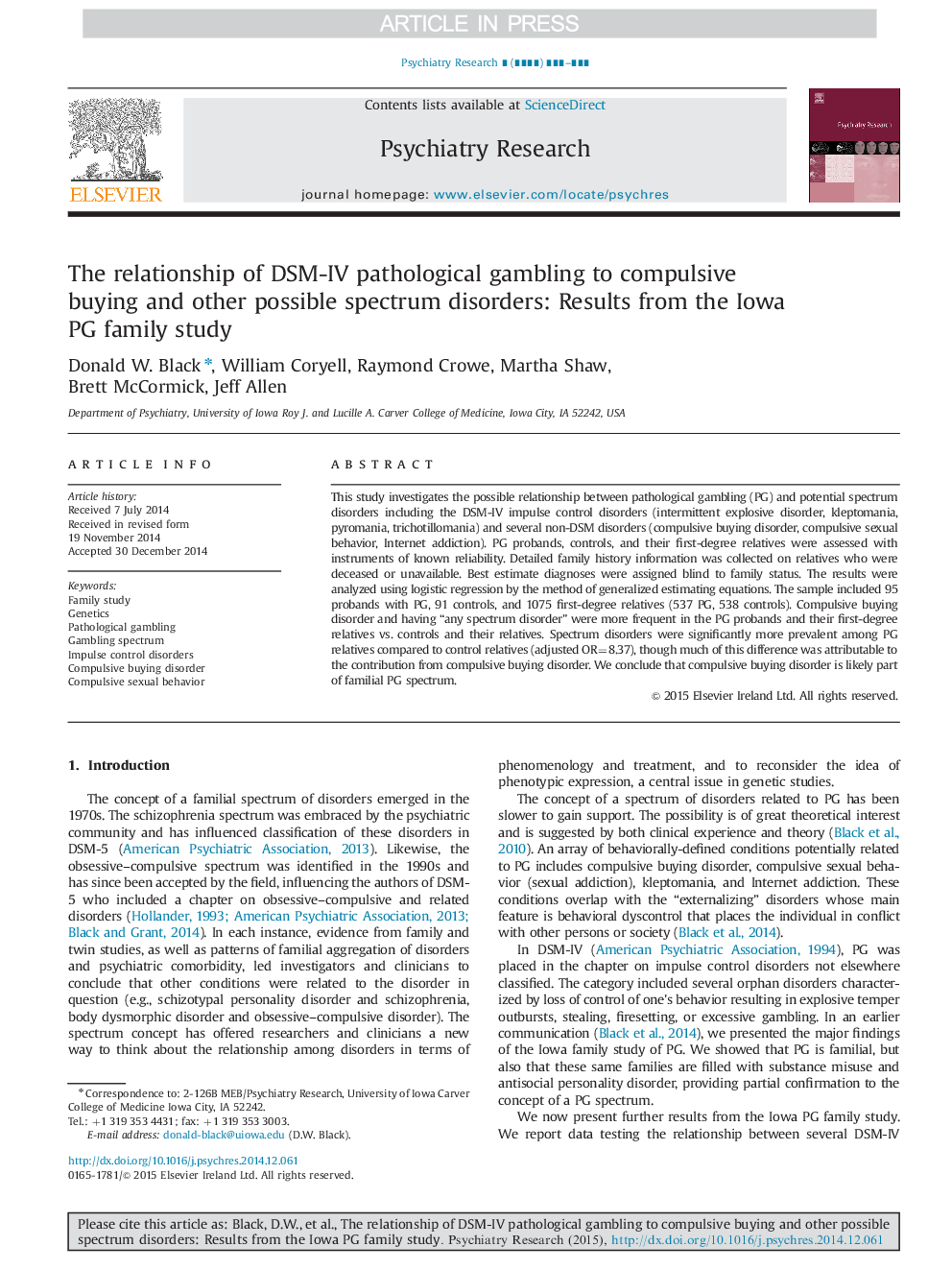| Article ID | Journal | Published Year | Pages | File Type |
|---|---|---|---|---|
| 10303822 | Psychiatry Research | 2015 | 4 Pages |
Abstract
This study investigates the possible relationship between pathological gambling (PG) and potential spectrum disorders including the DSM-IV impulse control disorders (intermittent explosive disorder, kleptomania, pyromania, trichotillomania) and several non-DSM disorders (compulsive buying disorder, compulsive sexual behavior, Internet addiction). PG probands, controls, and their first-degree relatives were assessed with instruments of known reliability. Detailed family history information was collected on relatives who were deceased or unavailable. Best estimate diagnoses were assigned blind to family status. The results were analyzed using logistic regression by the method of generalized estimating equations. The sample included 95 probands with PG, 91 controls, and 1075 first-degree relatives (537 PG, 538 controls). Compulsive buying disorder and having “any spectrum disorder” were more frequent in the PG probands and their first-degree relatives vs. controls and their relatives. Spectrum disorders were significantly more prevalent among PG relatives compared to control relatives (adjusted OR=8.37), though much of this difference was attributable to the contribution from compulsive buying disorder. We conclude that compulsive buying disorder is likely part of familial PG spectrum.
Keywords
Related Topics
Life Sciences
Neuroscience
Biological Psychiatry
Authors
Donald W. Black, William Coryell, Raymond Crowe, Martha Shaw, Brett McCormick, Jeff Allen,
